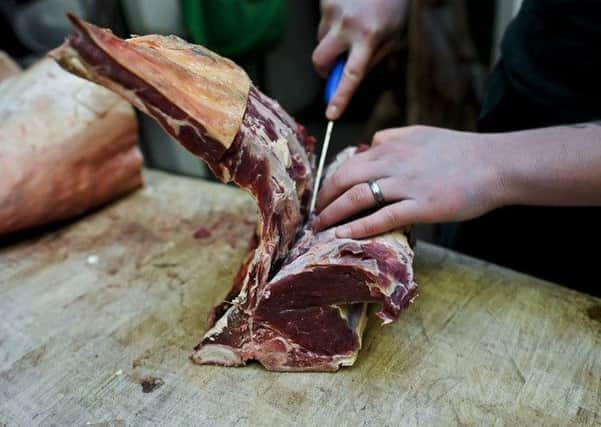More than 500 businesses slapped with food hygiene warnings in Kettering, Corby, Wellingborough and East Northamptonshire


The data from the Food Standards Agency shows the results of food hygiene inspections, over the 12 months to April.
Although most inspections are at restaurants, inspectors also visit farms, manufacturers and catering companies.
Advertisement
Hide AdAdvertisement
Hide AdIn Kettering, inspectors visited 887 businesses and handed out 142 written warnings.
In Corby, there were 86 warnings handed out during 419 visits, in Wellingborough the tally was 144 warnings in 727 visits while in East Northamptonshire inspectors vetted 778 premises and gave 147 warnings.
Any breach of food hygiene regulations can lead to a written warning. Breaches include problems with cleanliness, training of staff, record keeping, washing facilities and separation of cooked and raw foods.
Officials consider the seriousness of the case, as well as the co-operation of the business, before deciding on what action to take.
Advertisement
Hide AdAdvertisement
Hide AdAs well as the written warnings, in Kettering there were two hygiene improvement notices and one caution.
No businesses in Kettering were categorised as high risk, which would mean they would need to be inspected again within six months.
However, four notices were given for re-inspections in Corby.
This rating is different from the 0 to 5 score that restaurants and takeaways display in their windows, as it is an indicator of when officials need to assess the business again.
Advertisement
Hide AdAdvertisement
Hide AdA business which gets a high risk rating is “highly likely” to have breached food hygiene regulations, according to the FSA.
However it could also be because of its trade, such as large scale manufacturers with lots of customers or businesses that carry out specialist procedures.
In total there were more than 150,000 written warnings handed out in England, Wales and Northern Ireland in 2017-18, and 267 successful prosecutions. Scotland collects its data separately.
Nina Purcell, director of Regulatory Delivery at the FSA, said: “It’s encouraging that local authorities have made improvements in the percentage of interventions achieved and are continuing to target their activities at food businesses where food safety risks are the highest or where food fraud is more likely.”
Advertisement
Hide AdAdvertisement
Hide AdAn FSA spokeswoman encouraged people who see bad food hygiene to report it to the council.
In a statement, she said: “You can report poor hygiene practices in a restaurant, store or other food outlet to the business’s local authority at https://www.food.gov.uk/contact/consumers/report-problem/report-poor-hygiene-practices.”